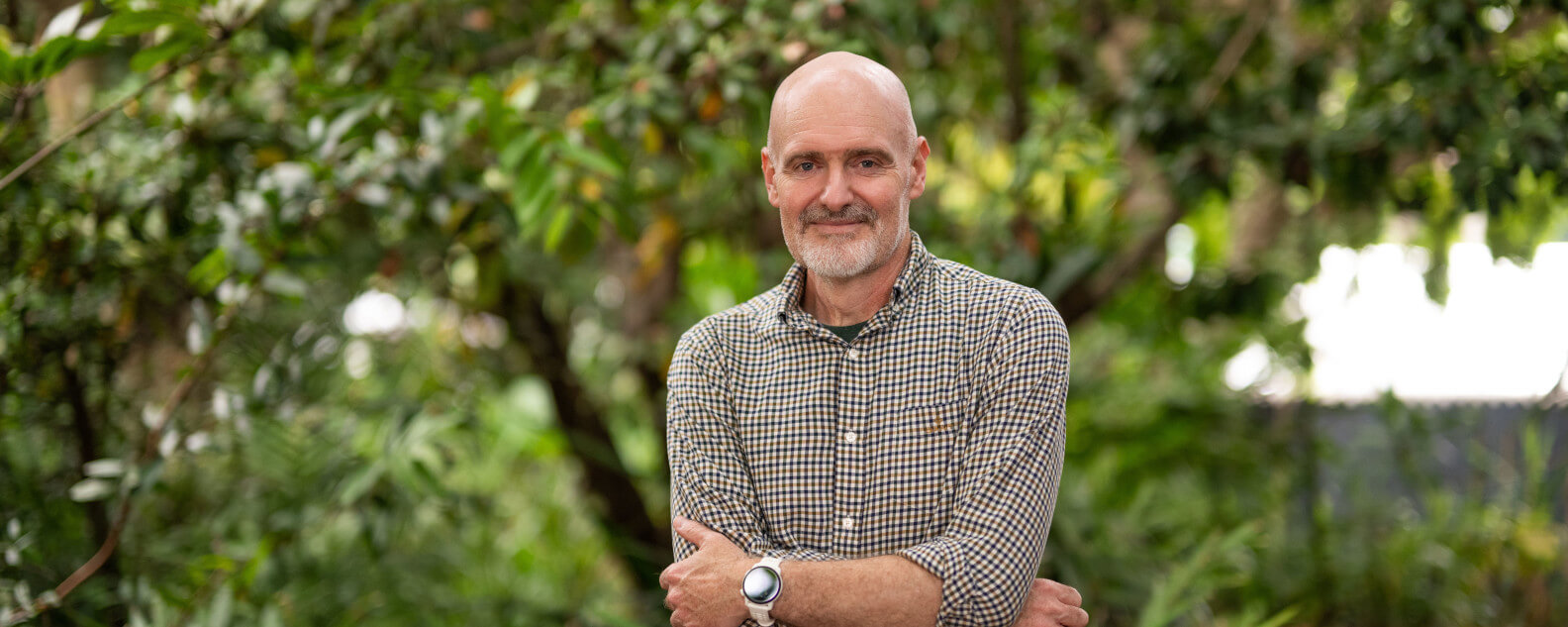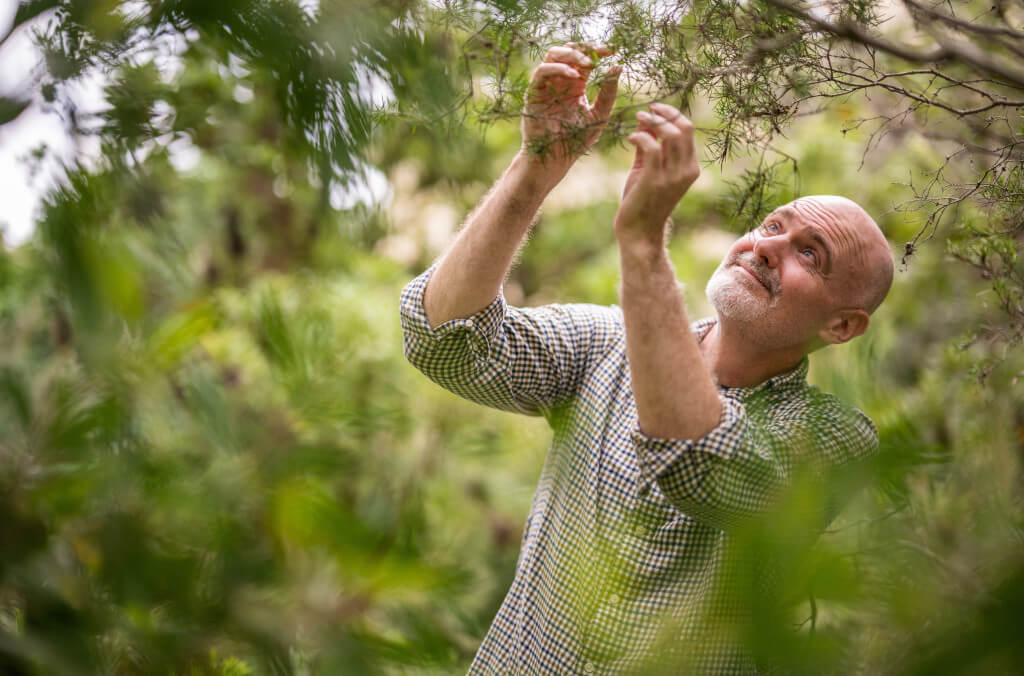
Jason Bragg is a Senior Research Scientist in the Research Centre for Ecosystem Resilience (ReCER) at the Botanic Gardens of Sydney.
Jason Bragg is a computational biologist, Jason’s expertise lies in processing large and complex datasets to make biological inferences that advance conservation efforts. This includes the analysis of genomic and sometimes trait data, and the links between these.
Central to his role is the pioneering Restore and Renew project, which makes recommendations via a website about where to collect seeds for ecological restoration. Genomic data collected by the ReCER team is translated into recommendations for the establishment of diverse and resilient restored plant populations.
Jason also works on an array of projects dedicated to the conservation of different threatened plant species. This involves using genetic data to devise strategies to protect the remaining genetic diversity in vulnerable populations. At present, he has a particular interest in the protection of species that are being impacted by the fungal disease myrtle rust.
Jason's academic journey includes a B.Sc. in Environmental Science from the University of New South Wales and a Ph.D. in Biology from the University of New Mexico.
Among Jason's favourite study subjects is the broad-leaved paperbark, Melaleuca quinquenervia. This species has a vital ecological role in eastern Australian swamp habitats, and is emerging as a model species for molecular and experimental research.
Driven by the pursuit of innovation, Jason enjoys using cutting-edge data or harnessing novel computational methods to extract information and address real-world challenges in conservation. His dedication to advancing ecological research makes him an invaluable asset to the Royal Botanic Garden Sydney and the broader scientific community.

Recent Publications
- Bragg, J. G., van der Merwe, M., Yap, J.-Y. S., Borevitz, J., & Rossetto, M. (2022). Plant collections for conservation and restoration: Can they be adapted and adaptable? Molecular Ecology Resources, 22, 2171–2182.
- Bragg, JG, Yap, J-YS, Wilson, T, Lee, E, Rossetto, M. Conserving the genetic diversity of condemned populations: Optimizing collections and translocation. Evol Appl. 2021; 14: 1225– 1238.
- Wilde, B.C., Bragg, J.G. and Cornwell, W. (2023), Trait-climate relationships within and among taxa using machine learning and herbarium specimens. Am J Bot. Accepted Author Manuscript. https://doi.org/10.1002/ajb2.16167
- Bragg, J.G., Supple, M.A., Andrew, R.L. and Borevitz, J.O. (2015), Genomic variation across landscapes: insights and applications. New Phytol, 207: 953-967.
- Hoban, S., Archer, F.I., Bertola, L.D., Bragg, J.G., Breed, M.F., Bruford, M.W., Coleman, M.A., Ekblom, R., Funk, W.C., Grueber, C.E., Hand, B.K., Jaffé, R., Jensen, E., Johnson, J.S., Kershaw, F., Liggins, L., MacDonald, A.J., Mergeay, J., Miller, J.M., Muller-Karger, F., O'Brien, D., Paz-Vinas, I., Potter, K.M., Razgour, O., Vernesi, C. and Hunter, M.E. (2022), Global genetic diversity status and trends: towards a suite of Essential Biodiversity Variables (EBVs) for genetic composition. Biol Rev, 97: 1511-1538.
For a complete publication list, see Jason's Google Scholar profile.